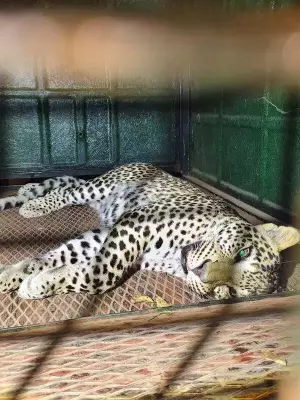
In a tragic incident that underscores the escalating human-wildlife conflict in Karnataka, a 65-year-old farmer lost his life to a tiger attack in the Saragur region of HD Kote taluk on Tuesday.
The victim, identified as Basave Gowda, was reportedly grazing his cattle near the forest border when the big cat launched its fatal assault. The incident occurred in the early hours, sending shockwaves through the local agricultural community.
Immediate Response and Recovery
Forest department officials swiftly responded to the incident, recovering Gowda's body from the attack site. The area has been identified as being within the territorial range of multiple tigers from the nearby Bandipur Tiger Reserve, making precise identification of the responsible animal challenging.
"Our teams have been deployed to monitor the situation and prevent further incidents," stated a senior forest department official. "We are implementing immediate safety measures and conducting awareness programs for local residents."
Growing Concern in Border Villages
This latest tragedy highlights the persistent danger faced by communities living along forest boundaries in Karnataka. Villagers in HD Kote taluk have repeatedly expressed concerns about increasing tiger movements near human settlements.
The forest department has intensified patrolling in vulnerable areas and is working with local communities to develop better early warning systems. However, residents continue to demand more robust protection measures for those whose livelihoods require them to work near forest edges.
Broader Implications for Conservation
This incident represents the complex challenge of balancing wildlife conservation with human safety. While tiger populations have shown recovery in protected areas like Bandipur, the spillover effect into adjacent human habitats creates dangerous situations for both people and animals.
Conservation experts emphasize the need for comprehensive strategies that address habitat connectivity, prey base management, and community-based protection initiatives to reduce such tragic encounters.





